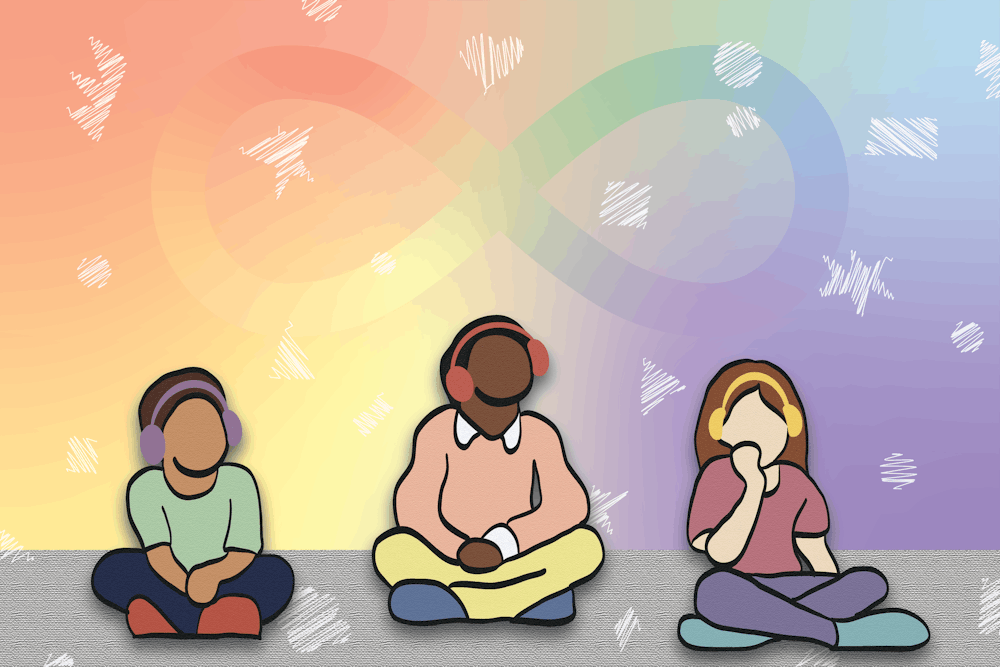During sensory-friendly nights, Kidzu removes noisy toys and offers sensory toys to help children transition between activities and cue cards for non-verbal children.
Kailey Singleton, the museum’s director of operations, said the most rewarding part of the program is seeing how children have formed connections with others like them as they play in a comfortable and unstructured environment that differs from school and behavior support programs.
“We hope that this will kind of be a launchpad space where they can learn how to interact with each other and understand that there are opportunities for them to be themselves and to play,” she said.
At the Chapel Hill Public Library, visitors can find sensory kits, comfy furniture and a lush, green sensory trail in the woods outside for all to explore.
These additions are part of the library’s “Neurodiversity and Nature” initiative, which offers nature-related spaces and materials for people with sensory-processing differences.
Since last year, CHPL has also provided items such as coloring books and scented sprays and added beanbags, hanging chairs and other sensory-friendly furniture in its space.
The library also began hosting monthly sensory story times. These story times were developed in partnership with organizations that work with neurodiverse children.
Hannah Olson, the marketing and communications coordinator at CHPL, said these story times have fewer attendees and take place in a larger space. They also have longer transitions between activities.
“It adds a little more time for folks to kind of engage with the stories in a more flexible way, rather than our typical story time [that] will go immediately from story to song to story to dance,” she said.
B3 Coffee, a nonprofit coffee shop that operates a kiosk in the CHPL, provides a similar sense of community for adults with sensory needs through their social events, which range from weekly coffee meetups to holiday parties. The events are open to both neurodivergent and neurotypical community members.
Aside from fidgets and diverse seating options, B3’s events also accommodate sensory needs through dim lighting and quiet rooms where people can go when they feel overstimulated.
Jacklyn Boheler, B3 Coffee’s executive director, said the organization also encourages guests to move in whatever ways they want. This includes stimming, or repetitive actions that people may do to self-regulate when they are feeling overwhelmed.
To get the day's news and headlines in your inbox each morning, sign up for our email newsletters.
Boheler said she hopes that these events can continue to promote disability justice, reduce stigma and build community among B3’s members. Attendees, she said, often tell her they feel like they can be themselves and belong at B3 events.
"I think we want to continue nurturing a community that gives everyone a sense of belonging and I think we want to continue expanding equitable access to this community," she said.
@http_shreya
@dthlifestyle | lifestyle@dailytarheel.com



